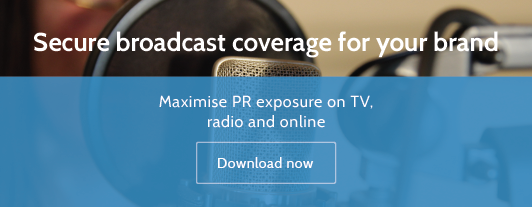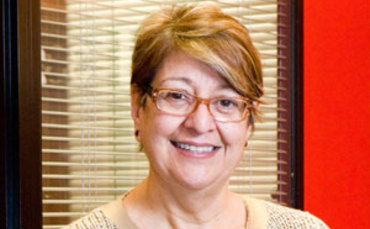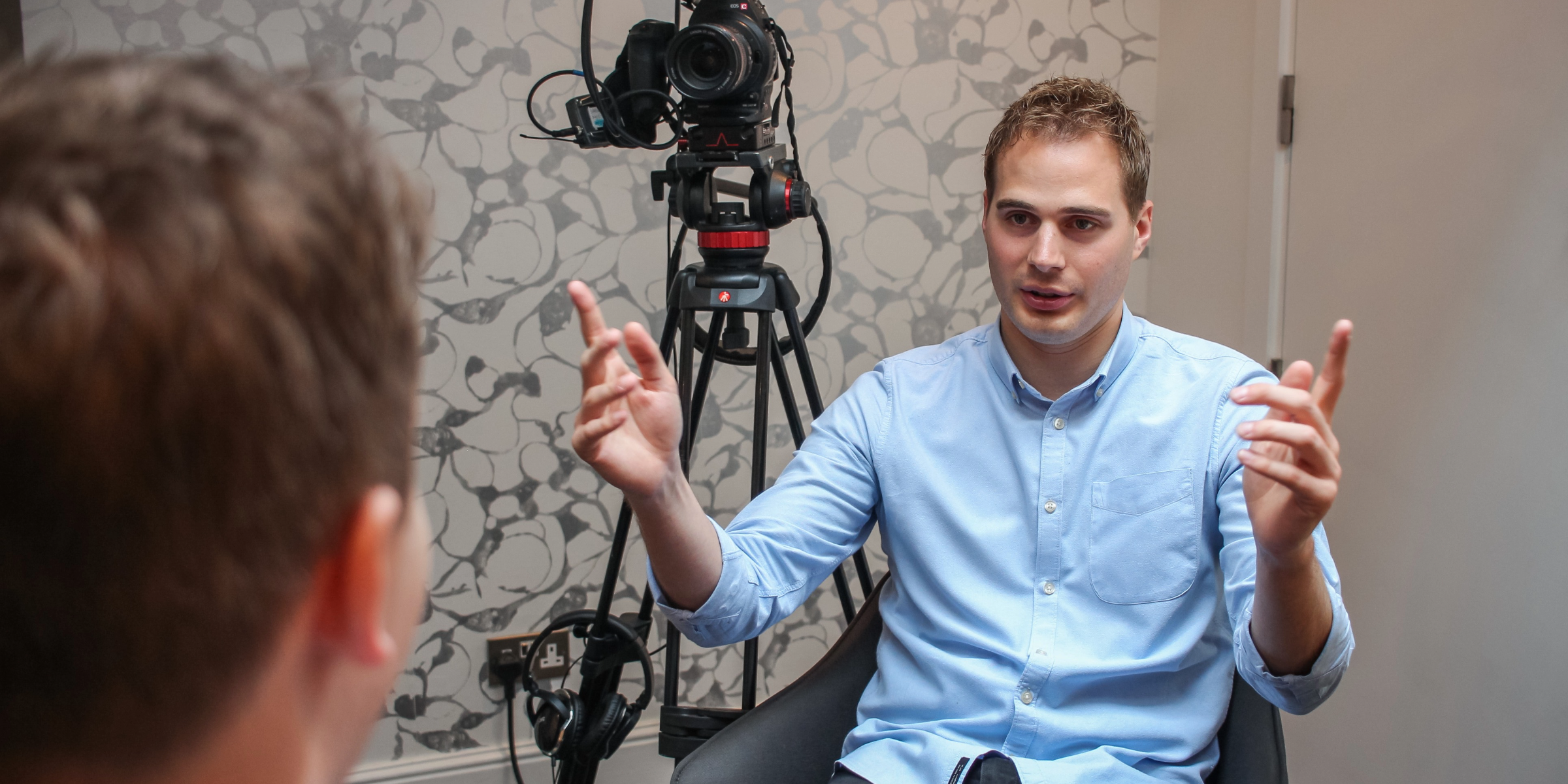At Shout! Communications we’re always looking to find the best spokespeople for Broadcast PR campaigns. But what makes a great spokesperson? Well we’ve spoken to one of our favourite psychologists; Gladeana McMahon, about how she prepares for TV and Radio appearances
Hi Gladeana. Can you explain a little bit about your role and expertise?
I am a Psychologist, Accredited Therapist and Coach who is able to speak on a wide range of issues from a psychological perspective. Having worked with a wide range of clients and client issues, I provide coaching and counselling services to individuals as well as organisations and am the author of some 20 academic and self-help books. In addition, I have presented a range of programmes for television.
What sort of stories and campaigns do you think work well for TV and radio?
The types of stories that work best for television and radio are those that individuals can relate to, are informative and include research data and statistics. The human psychology relates well to stories, encouraging individuals to use their own experience and imagination. Therefore, a story that provides information on a particular topic, together with statistics of what those participating in a piece of research said encourages individuals to consider their own views. By providing a view of why people might react a certain why or experience a certain set of feelings, helps individuals to consider their own perspective. In addition, information also provides answers or thoughts as to why a person might respond in a certain way.
What do you do to prepare for broadcast appearances?
When I am asked to assist with a story, it is important to be provided with as much information as possible and having all the research data ahead of time. I may have been involved in the research process, in which case, I am already well versed in the findings and am then able to link these with the available psychological research on a given topic. This enables to me consider the key points that would explain the outcome of the research. I also work with the organisation and with Shout! Communications on what is considered important from their perspective which enables me to weave this into the interview in a way that is robust yet interesting for the individual listener or viewer. It is important that I consider before the interview the types of questions I could be asked so that I have a response. This means considering the ways in which the data or argument could be challenged as well as supported. As it is important to be flexible during an interview (as you never know what will be asked), the only way to do this is to know your topic inside out together with the range of additional psychological research or data you may need to call upon. I often write down what I consider to be the key elements and what three points it would be important to get across. If I know I will be a co-spokesperson with an organisational representative, it is also useful for me to talk to the person so that we can decide who will discuss what and how we can ensure we work as a team when on air.
What makes a good radio/TV interview from a spokesperson’s perspective?
The challenge I enjoy most about being a spokesperson is presenting complex information in a down-to-earth and succinct manner. Given the short period of time usually allowed for the interviews, it is an exciting and enjoyable experience discussing the topic in question while building rapport with the interviewer. Although I have prepared, it means being willing to think on my feet too which is something I enjoy. In my experience and, if the topic allows, working out ways to get some humour into the interview also makes it enjoyable for the listener, the interviewer and for me. The best interviews are the ones where the interviewer asks clear questions, does not have a hidden agenda and allows the interview time to explore the issues from a range of perspective.
What can Talk TV offer your Broadcast PR campaign?
Well, firstly, another platform for quality PR stories can only be a good thing. Yes, you heard that right, Talk TV will be taking broadcast PR stories. But with some shows, like Piers Morgan’s Uncensored, only taking huge household names, knowing where in the schedule to pitch has never been more important. We can help you with this, as well as advise on what your broadcast PR story needs to make the cut.
How does a radio day at Shout! work?
Shout! takes the time to ensure that I have all the information I need and am well briefed. This makes my task so much easier. Once I arrive at the studio, there is usually a pre-meeting to confirm what will happen and reaffirm the requirements of the broadcasts. I am provided with a list of the radio broadcasts booked, with whom and at what time. The pre-meeting also allows me to get to know the organisational spokesperson if there is one and if we have not spoken already. There is also time for me to prepare my space in the radio booth from which the interviews are conducted. It is important for me to lay out my papers in case I need them in a way that does not interfere with the broadcast itself. My creature comforts are also taken care of in relation to refreshments and often breakfast is on offer when it is an early morning start. I am also able to meet the technical person who will be handling the connections with the radio station. After the first interview, there is an opportunity to reflect on what was said and make any minor amendments for future interviews. All of this makes the day run smoothly and if there is a gap between interviews there is also an opportunity for me to go outside, get some fresh air and relax before the next interview is due.
Simulcast with talkRadio
Now that talkRadio and TalkTV are simulcast, it means that landing an opportunity on the radio will automatically give you added audience on TV too. Fantastic for reach, but radio and TV are very different animals. We’d therefore recommend, that if your spokesperson hasn’t been on television before, to get them media trained. Again this is something we can help with. Click here for more information.
How does a radio day at Shout! work?
Shout! takes the time to ensure that I have all the information I need and am well briefed. This makes my task so much easier. Once I arrive at the studio, there is usually a pre-meeting to confirm what will happen and reaffirm the requirements of the broadcasts. I am provided with a list of the radio broadcasts booked, with whom and at what time. The pre-meeting also allows me to get to know the organisational spokesperson if there is one and if we have not spoken already. There is also time for me to prepare my space in the radio booth from which the interviews are conducted. It is important for me to lay out my papers in case I need them in a way that does not interfere with the broadcast itself. My creature comforts are also taken care of in relation to refreshments and often breakfast is on offer when it is an early morning start. I am also able to meet the technical person who will be handling the connections with the radio station. After the first interview, there is an opportunity to reflect on what was said and make any minor amendments for future interviews. All of this makes the day run smoothly and if there is a gap between interviews there is also an opportunity for me to go outside, get some fresh air and relax before the next interview is due.
Simulcast with talkRadio
Now that talkRadio and TalkTV are simulcast, it means that landing an opportunity on the radio will automatically give you added audience on TV too. Fantastic for reach, but radio and TV are very different animals. We’d therefore recommend, that if your spokesperson hasn’t been on television before, to get them media trained. Again this is something we can help with. Click here for more information.
What is the service and experience like at Shout!?
I enjoy working for Shout! because I get the information I need when I need it and work with interesting people who go the extra mile to ensure that I feel like part of the team. My views are taken into account and I also know I can turn to Shout! for advice if I need it. I have learned a lot from Shout! over the time I have worked for them about how they work, what clients are looking for and how to fulfil my brief. My experience of Shout! is that they will do everything they can do to ensure a professional, productive and enjoyable time is had by all.
For more information about Shout!’s Broadcast PR services, please call 0207 240 6363 or check out our media relations guide.




